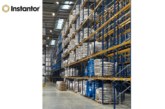
Colin Yates, Chief Support Officer at WorkMobile, explores the untapped benefits of digital data capture for builders’ merchants.
Digital transformation is not just another fad or buzzword. In fact, in an increasingly digital world, it will be a crucial process for any business looking to stay competitive in the coming years.
Broadly, digital transformation is the use of new digital technologies to solve traditional problems. Done well, it drives efficiency and improves productivity, saving a business both time and money. And for businesses in which a large proportion of workers are not office based, such as builders’ merchants, among the most useful of these new technologies are digital data capture solutions.
Digital data capture solutions, such as apps, allow data to be collected and stored remotely. This is done via the use of digital versions of forms and reports, instead of relying on outdated paper-based systems.
By their nature, builders’ merchants are incredibly complex and varied businesses, with employees generally split between the shop floor, the yard, delivery trucks, and often a head office. Each of these employees has very disparate responsibilities, with various vital pieces of paperwork to be completed regularly to ensure the smooth running of the business.
However, with staff operating from various locations, using paper is not the most effective, efficient or practical method of document management. And so for builders’ merchants considering adopting a digital data capture solution, here are just a few of the main benefits:
More accurate ‘retail management’
One of the most crucial aspects of running a successful retail business is monitoring stock levels accurately. With a mobile data capture solution, operational staff and sales staff can use the same software to handle stock lists and customer orders, and this data can then be fed back automatically to a central reporting platform.
In some cases, digital data capture solutions can even be integrated with existing systems, such as a business’s current CRM software or email marketing service. As a result, both branch managers and employees in head office can have access to the most up-to-date information instantly, without the need for anybody to manually input the data.
This also means that the amount of time that needs to be spent on administrative duties is kept to a minimum, as all data only needs to be recorded once. This presents a valuable opportunity for streamlining these processes, therefore improving efficiency and giving staff more time to spend on other, more productive activities.
Not only can eliminating the need for inputting data manually save businesses a lot of time, but it also drastically reduces the scope for human error. The data that is collected is likely to be much more reliable, and therefore useful, than it would be otherwise.

Improved health and safety
Builders’ merchants have a lot of key health and safety requirements, which, if overlooked could leave them vulnerable to all manner of fines and civil claims. However, it can be hard to store paper files and keep them organised, meaning that important health and safety documents are more likely to get misplaced or damaged.
As a result, being overly reliant on paper can leave businesses more vulnerable to compliance issues. This can have very serious ramifications for a business, particularly when it comes to health and safety.
We recently conducted research which showed that one in 20 British workers have witnessed an accident happen as a direct result of their company’s paper-based processes. This could range from correct procedures not being followed, to health and safety reports being lost or filed incorrectly. The retail sector sees the most paper-based accidents, with a shocking one in 10 employees having seen an accident occur.
Many businesses issue physical safety handbooks to its staff members, which are then rarely updated as they are expensive and time-consuming to reproduce each time a process is changed. Consequently, the same research revealed that 20% of workers would have no idea how to report an issue or hazard at work.
Using a digital data capture solution, head office can update and issue relevant safety information to staff members via their mobiles or tablets quickly and easily, without ever having to re-print a handbook.
Enhanced business intelligence
Perhaps most importantly of all, digital data capture solutions allow businesses to collect and have access to much higher quality data. Information is gathered more consistently, as all data captured in the forms or reports is then saved automatically.
With some solutions, photos and signatures can also be attached to a form, which greatly reduces the risk of additional documentation getting lost or filed incorrectly. They can also help businesses to access data that it would otherwise be almost impossible to collect, with it possible in some cases for example to GPS tag and time stamp documents.
Businesses should look for a data capture solution that can be connected to business intelligence tools, because this means that this high-quality data can be analysed quickly and easily, helping to identify patterns that will influence important business decisions. As a result, digital data capture can enable builders’ merchants to be more agile, responding to customer needs in a more informed and intelligent way.
Offering the opportunity to streamline administrative processes, improve health and safety compliance, enhance reporting capabilities, and inform long-term strategy, it’s clear that digital data capture solutions are worth serious consideration for builders’ merchants looking to refine their business operations.
Manchester-based WorkMobile is an award-winning mobile data capture service that replaces paper forms. Using the API, data captured may be integrated into back-office or ERP systems and further extended into a bespoke workflow solution that includes a variety of management information reporting options.









